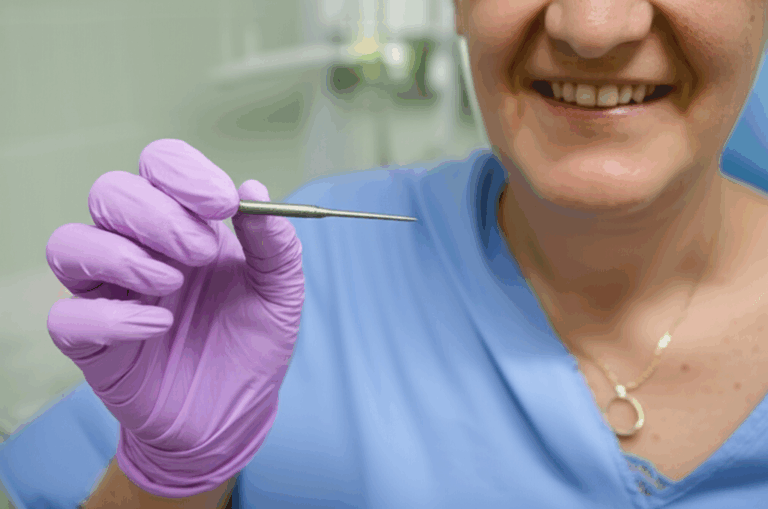
Does MaineCare Cover Dental Implants? Understanding Maine’s Adult Dental Benefits
That Sinking Feeling When You Lose a Tooth: Is Help Available with MaineCare?
Losing a tooth isn’t just about the gap in your smile—it can make it hard to eat your favorite foods, talk clearly, or even feel good in pictures. Maybe you’ve heard about dental implants as the best way to fix those gaps. If you have MaineCare, Maine’s Medicaid program, you might be wondering: does MaineCare pay for dental implants?
Let’s give you the answer right away: in most situations, MaineCare does not pay for dental implants for adults. But wait! There’s more you should know, like important updates to MaineCare’s adult dental benefits, lots of other choices you can get, and smart ways to care for your teeth.
This plainspoken guide will walk you through what you need to know about MaineCare, dental implants, and how to get your smile back—without confusing terms or tricky rules.
In This Article
- MaineCare’s Adult Dental Benefits: What’s Included?
- Can You Get Dental Implants with MaineCare? The Details
- MaineCare’s Covered Alternatives for Missing Teeth
- How to Use MaineCare for Dental Care (and What to Expect)
- Affordable Dental Implants Beyond MaineCare: Options & Advice
- The Future: Will MaineCare Ever Cover Dental Implants?
- Your Healthy Smile Takeaway
MaineCare’s Adult Dental Benefits: What’s Included?
Here’s some good news—MaineCare’s adult dental coverage has gotten much better. If you haven’t checked your benefits lately, you might be surprised in a good way.
What Changed in 2023?
Not long ago, MaineCare for adults only helped during emergencies (like pulling a really bad tooth). But starting January 1, 2023, MaineCare added more dental services for adults. Now, more people can see a dentist for checkups, cleanings, and treatments before things get too bad.
What Dental Services Does MaineCare Cover for Adults?
Now, MaineCare pays for many dental services for adults. Here’s a quick list:
- Preventive Care: Regular exams, teeth cleanings, fluoride treatments, and X-rays.
- Diagnostic Services: Tests to find out what’s going on with your teeth or gums.
- Restorative Procedures: Fillings for holes in teeth, root canals, crowns, or bridges to fix broken or missing teeth.
- Periodontal Treatments: Gum disease care and deeper cleanings.
- Oral Surgery: Tooth extractions—sometimes needed to get healthier.
- Dentures (Full and Partial): If you’re missing lots of teeth, dentures are the main fix MaineCare pays for.
That’s pretty good for most regular dental needs. These new benefits have helped seniors, low-income adults, and anyone who couldn’t afford a dentist before.
What’s Not Covered?
This is important for our main question. MaineCare, like most Medicaid plans everywhere, does not usually pay for dental implants. They think implants are extra, cost too much, and are mainly for looks. Sometimes there are special cases, but for most adults, you can’t get implants through MaineCare.
Can You Get Dental Implants with MaineCare? The Details
Here it is, plain and simple.
Why Doesn’t MaineCare Pay for Dental Implants?
Dental implants are like fake tooth roots placed in your jaw, with a crown on top that works and looks like your own tooth. Implants are usually the best fix, but the price is pretty shocking—they can cost $3,000 to $5,000 or more for just one tooth.
MaineCare says dental implants are “cosmetic” (for looks) or not needed. Medicaid tries to pay for care that’s needed, like stopping tooth pain or fixing problems, so implants don’t usually make the list.
Are There Ever Exceptions?
Yes, but they don’t happen much. Sometimes, MaineCare might cover dental implants if:
- You had a really bad injury to your mouth or jaw and nothing else will help you eat or talk.
- Dentures and bridges just don’t work for you, maybe because of allergies or how your mouth is shaped.
Even then, you’d need:
- Proof of “medical necessity”: Your dentist must show there’s no other way to fix your eating and talking.
- Lots of paperwork: Forms, proof, and sometimes appeals—all before you can get treatment.
- Case-by-case review: Even if you seem to qualify, it’s not a sure thing.
Bottom line: If you just want implants to chew better or feel better about your smile, MaineCare almost never covers them.
What if I Already Have an Implant—Will MaineCare Fix It?
MaineCare might pay for treating gum troubles or infections near an implant, but won’t pay to fix or redo the implant itself unless you fit those rare cases.
But What About the Crown or Bridge That Goes on Top?
If, somehow, you qualify for the implant, MaineCare might pay for the crown (the “cap” that looks like a tooth) that attaches to the implant, or a bridge that connects to your real teeth. But you don’t get coverage for the implant post—the part put in your jaw.
MaineCare’s Covered Alternatives for Missing Teeth
So, implants are out for most MaineCare members. But you do have solid ways to get your smile, and your bite, back.
Dentures: The Go-To Fix for Missing Teeth
Full and partial dentures are the main fix MaineCare pays for when you have lost several or all your teeth.
Full Dentures
These replace all the teeth in your upper or lower jaw. Dentures are shaped just for you and fit over your gums. Newer designs look natural and can be comfy if fitted right.
Partial Dentures
These fill in the gaps when you’re missing only a few teeth and use your real teeth to hold them in place. They can keep your other teeth from moving around and help you chew.
Pros of Dentures
- Paid by MaineCare (no cost for most people)
- Much quicker and easier than implants (no surgery)
- Help you eat, talk, and smile more easily
Cons of Dentures
- Can take time to get used to (might feel big at first)
- Need to be cleaned often and fixed sometimes
- Not as steady as implants—you might need glue
Dental Bridges: Filling the Gap
If you’re missing one or a few teeth, dental bridges are another MaineCare choice. A bridge uses your real teeth near the gap as “anchors” with a fake tooth in the middle.
Bridges fix the space and look natural. But you need good anchor teeth, and they can’t be used if a lot of teeth are missing in a row.
Why Not Just Leave the Gap?
You might think, “Can I just leave it open?” You can, but over time, missing teeth can:
- Make chewing uncomfortable, so you might start not eating certain foods
- Change how you talk (like whistling or lisping)
- Cause your other teeth to move or get loose
- Make your jawbone shrink and change your face shape
That’s why MaineCare pays for things like dentures and bridges—they help for more than just looks!
How to Use MaineCare for Dental Care (and What to Expect)
Health insurance can be confusing, but these tips will make things easier.
Finding a MaineCare Dental Provider
Not every dentist takes MaineCare. Here’s what you can do:
- Check MaineCare’s Provider Search Tool: The Maine Department of Health and Human Services has a list of dentists that take MaineCare.
- Call Local Cities’ Dental Clinics: Ask, “Do you take MaineCare for adults?” Many community health clinics do.
- Contact the University of New England College of Dental Medicine: Their clinics often accept Medicaid and help with lower-cost care.
Understanding Prior Authorization
For regular cleanings or fixing cavities, you usually don’t need any extra steps.
But for bigger jobs—like dentures, crowns, or a bridge—your dentist might need to send paperwork to MaineCare for approval (“prior authorization”). You don’t need to do anything, but it’s good to know. Sometimes this takes a few weeks.
Keeping Track of Your Benefits
Dental rules can change. To avoid surprise bills:
- Call MaineCare Member Services: Talk to someone who can answer your questions.
- Ask your dental office: They can check what your plan covers and what you might owe.
What if You’re Turned Down for a Service?
If MaineCare says no to something you (and your dentist) feel is needed, you can:
- Ask for a review (file an appeal)
- Send more paperwork to show why you really need it
Appeals for implants almost never work, but they do sometimes for things like dentures or certain surgeries if your health depends on it.
Affordable Dental Implants Beyond MaineCare: Options & Advice
Maybe you’ve looked at dentures and bridges and still want implants. “Is there any way to get dental implants I can actually afford?”
Here are good ideas to try, even if MaineCare won’t pay.
1. Dental Schools
Dental students—watched by real dentists—often do procedures at much lower prices, sometimes half-price (or less). Maine’s University of New England College of Dental Medicine is a good place to start. You might have to wait, but you can save a lot.
2. Community Health Centers and Sliding Scale Clinics
Many Maine health centers offer dental services at sliding costs—meaning, if you have less money, you pay less. They usually don’t do full implants but may help with other work, or find you a specialist who can work with your budget.
3. Payment Plans, Dental Credit, and Discount Plans
- Payment Plans: Some dentists let you pay over time instead of all at once.
- Dental Credit: Companies like CareCredit give special credit cards for dental care, sometimes with no interest if paid off on time.
- Dental Savings Plans: Like a “membership club” that gives you a big discount on work. Not insurance, but you save money.
- Ask for package deals: Some dentists lower prices if you need more than one implant.
4. Charitable Dental Groups, Nonprofits, and Grants
Sometimes, local charities might be able to help. Look at groups like the Maine Dental Association, local churches, senior centers, or implant insurance programs for grants or help.
5. Dental Labs and Labs in Other Countries
You may hear about digital dental labs or china dental labs offering low-cost products for dentists, helping to lower your total bill. But only a real dentist can safely put in an implant, so always put your health first.
Cost Comparison: Implants, Dentures, and Bridges
- Implants: $3,000-$5,000 (or more) each—not usually paid by MaineCare.
- Dentures: Usually paid in full by MaineCare (or $1,000-$2,000 per arch privately).
- Bridges: Costs change, but often $2,000-$3,000 each. Sometimes paid if you need them, depends on your plan.
A removable denture lab or crown and bridge lab can work with your MaineCare dentist to get you good results for the fixes that are covered.
The Future: Will MaineCare Ever Cover Dental Implants?
Health rules change slowly, but people are asking for better dental coverage. A few states now cover implants in special cases (like after head or neck cancer), but broad coverage is still not likely because of high costs.
In Maine, the rules might change in the future. You can help by:
- Talking to your local lawmaker (the Maine state government decides on dental rules)
- Reaching out to groups like the Maine Oral Health Coalition
- Telling your story to groups that help patients
Good changes come when people speak up about how teeth, overall health, and life quality are connected.
Your Healthy Smile Takeaway
Here’s what’s most important, plus a quick to-do list:
MaineCare & Dental Implants: The Big Points
- Dental implants are almost never covered by MaineCare. (Only in rare, extreme medical situations.)
- MaineCare does cover: Checkups, cleanings, fillings, crowns, extractions, full and partial dentures, bridges, and gum treatment.
- Dentures and bridges are usually your best bet for missing teeth with MaineCare.
- For implants: Look at dental schools, low-cost clinics, and dental labs for better prices, but you’ll have to pay on your own.
- Coverage can change: Always check with MaineCare or your dentist for what’s current.
Simple Steps to Take Right Now
- Book a dental exam: Even if you’re just curious, it’s the first step to see what you need.
- Ask about all choices: Dentures are better now than ever, and bridges can work—your dentist will walk you through options for your mouth.
- Look for community help: From the University of New England Dental Clinic to local clinics, there are ways to get help.
- Take care of your teeth every day: Brushing, cleanings, and catching trouble early help prevent more tooth loss.
Your Smile, Your Health, Your Confidence
Losing a tooth doesn’t have to mean you lose hope. MaineCare pays for more adult dental care now, and if you know how the system works, you can get the care you need. If implants are out of reach with MaineCare, remember—other options and resources are out there. You’re not alone.
Want more details, updates on MaineCare, or need help finding a dentist who takes your plan? Call MaineCare Member Services, ask your local dentist, or check your local health center. Your smile matters.
Frequently Asked Questions About MaineCare and Dental Implants
Does MaineCare pay for one dental implant if I’m missing a front tooth?
Almost never—unless you have a special medical reason (like a serious accident or birth condition) and it gets approved before treatment.
Can MaineCare cover getting damaged implants taken out?
Yes, it can cover removing implants and treating infections around them, but not getting a new implant put in.
If I save money for an implant myself, can MaineCare pay for the rest?
No, only fully covered services (like dentures, bridges, fillings, etc.) are paid for. You pay for implants yourself.
Where can I find out about different dentures or bridges?
Ask your MaineCare dentist, check Maine DHHS’s dental benefits page, or see what crown and bridge labs recommend for a natural look.
Medically reviewed by a licensed dental professional. Sources: Maine Department of Health and Human Services, American Dental Association.
Ready to move toward a healthy, confident smile? Book that MaineCare dental appointment, ask questions, and check all your choices. We’re here to help you make the best choice for your teeth—and your life.







